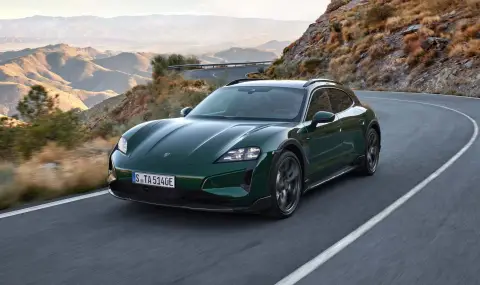The automotive industry is constantly evolving and Porsche is no exception, already having plans for the next generation of the Taycan electric sports car. Although it recently updated the current Taycan with significant improvements, Porsche is looking ahead to further advancements for the upcoming model.
Sara Razavi, manager "Taycan charging and power system" at Porsche, confirmed that work on the next-generation Taycan has already begun. Although the current model is built on the J1 platform that also underpins the Audi E-Tron GT, Razavi hinted at the possibility of a new platform for the next iteration, potentially the SSP Sport platform, billed as a large electric SUV with three rows of doors.
Acknowledging the limitations of the J1 architecture, Razavi emphasized the goal of achieving greater mileage for the next Taycan. While solid-state batteries are being considered, their deployment readiness remains uncertain due to ongoing development.
Porsche is faced with the challenge of balancing the increased range with the added weight of larger batteries, given the Taycan's sports car aspirations and the importance of avoiding owners' range anxiety.
As Porsche looks to the future with the second-generation Taycan, questions arise about the fate of the Panamera. Reports suggest it could move on to a larger electric car positioned above the Taycan, which will share the same SSP Sport platform. The potential introduction of an electric Panamera doesn't necessarily mean the end of the petrol model, however, as Porsche intends to maintain a diverse range with both electric and CNG (internal combustion engine) offerings.
Like the coexistence of electric and gasoline variants in other Porsche models, such as the Macan, Boxster and Cayman, the transition to electric powertrain does not necessarily mean the end of traditional models. However, changing regulations, such as stricter cybersecurity requirements in the European Union, may affect the availability of some models in the future.
